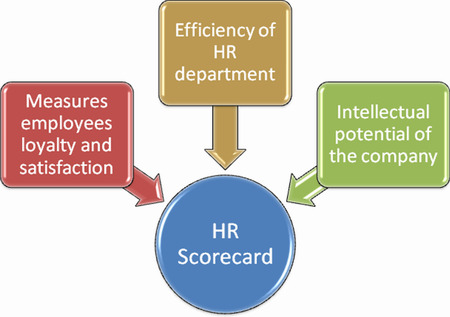Value Analysis (VA) was established by Lawrence D. Miles of General Electric in America. The basic fundamental of value analysis can be implemented in any product to optimize its value. In more details, value analysis is actually a process of systematic review that is applied to existing product designs in order to compare the function of the product required by a customer to meet their requirements at the lowest cost by eliminating unnecessary costs that consistent with the specified performance and reliability needed. First of all, value analysis (and value engineering) is a formal and organized process of analysis and evaluation which required management activities including planning, control and coordination. These analysis concerns the function of a product such as utility, guarantee, or safety performance to meet the demands needed or required by a customer. Thus, to meet this functional requirement the review process must include an understanding of theContinue reading
Modern HRM
Human Resources as a Strategic Partner in an Organization
The general scenario in most companies is as follows. HR management teams have well-developed visions of their departments, their roles and responsibilities. But, the senior management is generally skeptical of HR’s role in the firm’s success. They generally consider HR to just be another necessary appendage but not something that can contribute to the success of the company. Even if the senior management does believe that human capital is their most prized possession and asset, they cannot understand how the HR team can make this belief come alive. There is one reason for all of this. Human capital is an intangible asset and HR’s influence on firm performance is difficult to measure. The standard elements of a firm’s resource architecture that are measured include total compensation, employee turnover, cost per hire, percentage of employees that undergo performance appraisals and percentage employee satisfaction. The question to be asked is: Are theseContinue reading
The Strategic Role of HR
As people become the key competitive advantage in any industry, the human resource (HR) development function will and should play a more strategic role. It should go beyond its mere administrative support function to operations and front line departments. Whether or not company views HR strategically may decide whether market share, sales, or profits would increase or not. An effective HR strategy becomes equally decisive as the company‘s marketing strategy. Technology too is changing HR roles. As industries, specifically the services sector, and the way they compete become knowledge-based, HR performance indicators will shift from manpower and man-hours supplied to brainpower and brain hours delivered. The key result areas in people management will also shift from production and quantity to productivity and quality. Capability, measured in employee ideas generated and implemented, and productivity gained, will be more important than capacity, measured in man-hours available, man-hours lost, absenteeism, etc. The currentContinue reading
HR Scorecard: A Balanced Scorecard for HR
The new economic paradigm is characterized by speed, innovation, quality and customer satisfaction. The essence of the competitive advantage has shifted from tangible assets to intangible ones. The focus is now on human capital and its effective alignment with the overall strategy of organizations. This is a new age for Human Resources. The entire system of measuring HR‘s contribution to the organization‘s success as well as the architecture of the HR system needs to change to reflect the demands of succeeding in the new economy. The HR scorecard is a measurement as well as an evaluation system for redefining the role of HR as a strategic partner. Managers often use an HR Scorecard to measure the HR function’s effectiveness and efficiency in producing employee behaviors and thus in achieving the company’s strategic goals. The HR Scorecard is a concise measurement system. It shows the quantitative standards or “metrics” the firmContinue reading
Edgar Schein’s Career Anchors
Edgar Schein, one of the founders in the field in modern organizational psychology, pointed out that, every one of us has a particular orientation towards work. As a result of which, we all approach our work with a set of priority and certain values. This concept is known as ‘Career Anchors’. It represents one’s combination of perceived career competence and includes talents, motives, values and attitudes that give stability and direction to a person’s career. It is regarded as the ‘motivator’ or ‘driver’ of that person. Edgar Schein’s Career Anchors depicts one’s highest priority needs and the factors of work lives one may not be willing to give up. Many people are not really clear about their need and competencies and make an inappropriate career choice, that lead to dissatisfaction and frustration at work. Knowing their Career Anchor properly, people develop sufficient insight to make intelligent and appropriate career choices.Continue reading
Soft Skills – Meaning and Importance
The term personality is derived from Latin word persona, a mask worn by actors in classical dramas. Behaviorist psychologists feel that if a person has some kind of impact or makes a certain impression on others, it must be because of his actions. The simplest meaning of personality, therefore, is “the pattern of responses” which characterizes the individual. An individual’s personality is invariably revealed through interactions in the personal, social and the professional arena, for the act of communication determines how one views and in return is viewed by the world around. In the modern world of professional rivalry and competitive business, obsessed with power and achievement, personality becomes the byword for success. There are qualities that enable one to evolve and grow into an empowered and well-balanced personality, a choice that proves to be a wise investment for long-term achievements. Such qualities along with the ability to effectively communicateContinue reading


